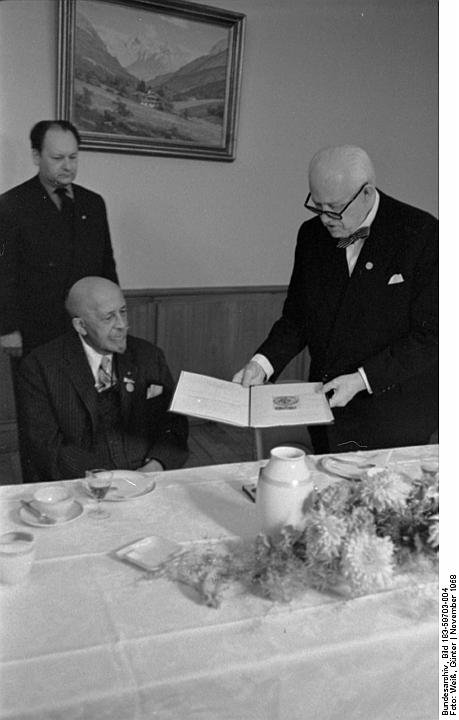W.E.B Du Bois
William Edward Burghardt Du Bois (1868–1963) was an American civil rights activist, intellectual, and historian. Born in Great Barrington, Massachusetts, Du Bois was the first African American to graduate with a Ph.D. from Harvard University and went on to a distinguished scholarly career.
A professor at Atlanta University, Du Bois was a prolific writer on African-American history and racial injustice. The most prominent African-American intellectual leader and political activist of his time, Du Bois relentlessly argued against racism and viewed political participation as a central means to achieve African-American equality. In 1909, he cofounded the National Association for the Advancement of Colored People (NAACP), which was to become America’s most influential civil rights organization, and remained editor-in-chief of its periodical The Crisis until 1934.
After World War I, he also became an early advocate of Pan-Africanism and a founding spirit of anti-colonialist scholarship. Later in his life, Du Bois grew more sympathetic to communism. He joined the CPUSA in 1961 at age ninety-three and traveled to Ghana to work on a project. He became a citizen of that country in 1963, and died there later that year.
Du Bois experienced Germany repeatedly throughout his adult life, from his student days in Wilhelmine Berlin to a visit to East Germany toward the end of his long life. From 1892–94, working toward his Harvard degree, he had studied abroad at the Kaiser Friedrich Wilhelm University of Berlin, where he attended classes with August Schmoller, a renowned economist, and Heinrich Treitschke, an eminent historian. He returned to Germany several times, most notably in the summer of 1936, when Berlin, the capital of Nazi Germany, hosted the Summer Olympic Games.
In November 1958, the communist East German state welcomed Du Bois, now aged ninety, who had developed profound sympathies for socialism as a solution to the global and domestic division of race. His old university in Berlin, renamed Humboldt University, honored him for his lifelong achievements, awarding him an honorary Doctor of Economics degree for both his “meaningful scholarly achievements” and “his outstanding service in the struggle to free African peoples and to maintain world peace.”
In his acceptance speech, Du Bois discussed the development of Pan-Africanism and addressed the Humboldt University students in German, declaring that, though his proficiency in German of “student days was gone, [his] dear memories remained.”
Further Reading:
a) General
The Autobiography of W.E.B. Du Bois: A Soliloquy of Viewing My Life from the Last Decade of Its First Century (New York: International Publishers, 1968).
Levering Lewis, David: W.E.B. Du Bois: The Fight for Equality and the American Century: 1919–1963 (New York: Holt, 2001).
b) Related to Germany
Barkin, Kenneth: “‘Berlin Days,’ 1892–1894: W.E.B. Du Bois and German Political Economy,” boundary 2, 27.3 (2000): 79–101.
Beck, Hamilton: “Censoring your Ally: W.E.B. Du Bois in the German Democratic Republic,” in: David McBride, Leroy Hopkins, and Carol Blackshire-Belay, eds., Crosscurrents: African Americans, Africa, and Germany in the Modern World (Columbia, SC: Camden House, 1998), 197-232.
Beck, Hamilton: “W.E.B. Du Bois as a Study Abroad Student in Germany, 1892–1894,” (accessed 27 October 2009).
Höhn, Maria and Martin Klimke, A Breath of Freedom: The Civil Rights Struggle, African American GIs, and Germany (New York: Palgrave Macmillan, 2010), chapter 1, 7.
Oppel, Christina: “W.E.B. Du Bois, Nazi Germany, and the Black Atlantic,” in: GHI Bulletin Supplement 5 (2008): 99–120.
c) Related Sources in Digital Archive
German Transcript of Du Bois’s Speech at Humboldt University in 1958.
Manuscript of Speech Praising Du Bois at Honorary Doctorate Award Ceremony at Humboldt University.
W.E.B. Du Bois’s Final Transcript from Friedrich-Wilhelms-University in Berlin.








